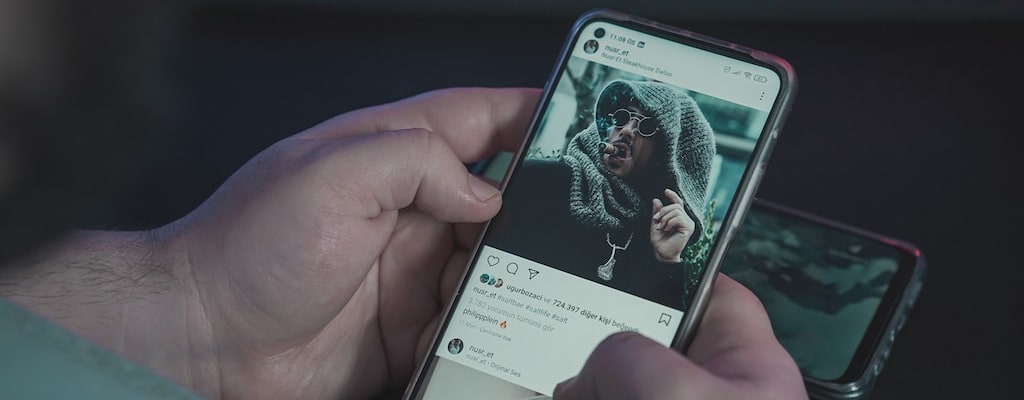the finger: Idiom Meaning and Origin
What does ‘the finger’ mean?
The idiom "the finger" is a gesture involving extending the middle finger upwards, often considered offensive and disrespectful. It is used to express anger, frustration, or contempt towards someone or something.

Idiom Explorer
An idiom used to emphasize the extreme or exceptional quality of someone or something.
The idiom "that ever walked on two legs" is a colloquial expression used in American English. This idiom emphasizes the exceptional qualities or characteristics of someone or something. It is often used in a hyperbolic manner to convey a sense of awe, admiration, or astonishment.
The idiom "tell someone where to shove it" means to angrily reject or dismiss someone or something, often with hostility or contempt.
The idiom *suck my cock* is a vulgar and offensive expression, typically used to express extreme anger, disrespect, or defiance towards someone. It is important to note that this idiom is highly inappropriate and should not be used in polite or professional settings.
The idiom "suck it" is a slang expression used to dismiss or insult someone, often in a rude and aggressive manner.
Suck it is an idiom that is commonly used in everyday American English. It is a slang phrase that originated in the late 20th century and has since become a part of popular culture. The meaning of this idiom is simple and carries a strong sense of defiance, dismissal, or triumph.
The idiom "suck a big one" is a vulgar expression used to convey extreme dislike, annoyance, or dismissiveness towards someone or something. It is considered offensive and derogatory.
The idiom "stuff you" is a vulgar expression used to show extreme dissatisfaction or contempt towards someone or something. It is a rude and offensive way of dismissing or rejecting someone or their ideas.
The idiom "sticky fingers" refers to someone who has a tendency to steal or take things that do not belong to them. It implies dishonesty and a lack of integrity.
The idiom "spit on" is typically used to convey the idea of disrespect or disregard towards someone or something. It suggests a lack of value or importance placed on someone or something, often accompanied by a dismissive or contemptuous attitude.
The idiom "spit on" is a relatively new phrase that has gained popularity in recent years. It is believed to have emerged in American English as a slang expression.
The idiom "spit nails" means to be extremely angry or furious.
One idiom that has gained popularity in recent years is “spit nails.” This phrase is commonly used to describe someone who is extremely angry or furious. The exact origins of the idiom are unclear, but it is widely understood by English speakers.
The idiom "spit feathers" means to be extremely angry or frustrated.
Spit feathers is an idiom that means to be extremely angry or irritated. This vivid phrase conveys a strong sense of frustration and anger, and it is commonly used in American English. The image evoked by this idiom is that of a person who is so angry that they are metaphorically spitting feathers from their mouth.
The Defiant Gesture
The idiom "the finger" has several meanings and origins. One of its most common meanings is to make an offensive gesture by extending the middle finger, often referring to the act as "giving someone the finger" or "flipping someone off." This gesture is considered vulgar and offensive in many cultures, including the United States. The origin of this particular gesture is uncertain, although there are various theories proposing different explanations.
One theory suggests that the act of showing the middle finger as an insult dates back to ancient Greece. It is believed that this gesture was a reference to the phallus, symbolizing male genitalia and representing a derogatory and offensive insult. However, there is limited evidence to support this theory, and its exact origin remains speculative.
Another theory suggests that the gesture originated during medieval times when English archers used longbows to shoot arrows. It is said that French soldiers, upon capturing an English archer, would often cut off their middle fingers to prevent them from using a bow. As a form of defiance, the archers would allegedly show their middle fingers to the French soldiers, indicating that they still had their ability to shoot arrows. While this story is widely circulated, its historical accuracy is questionable.
Regardless of its uncertain origins, "flipping the bird" has become a prominent idiom in modern language. Its usage extends beyond the literal gesture and is often used to convey strong disdain, defiance, or to express frustration or anger towards someone or something. It can also be used in a lighthearted or playful manner between friends or acquaintances.
In addition to its offensive meaning, "the finger" is also used in another idiomatic sense. In this context, it refers to pointing blame or responsibility at someone. For example, if a mistake occurs, someone might say, "Don't lay a finger on me!" This usage implies shifting blame or accusing someone of being responsible for a particular situation.
When someone "points the finger" at another person, they are accusing or blaming them for something. It can be a way of deflecting responsibility or trying to avoid taking the blame themselves. This idiom suggests that the person being accused is the one at fault, while the accuser is innocent or free of any wrongdoing.
Using the idiom "point fingers" is similar to "pointing the finger," but it is used when multiple people are being accused or blamed for something. It suggests that there are multiple individuals who may be responsible for a particular situation, and it implies that they are all equally deserving of blame or scrutiny.
Furthermore, there is an idiom called "long finger" that is related to "the finger." This phrase is often used to describe someone who is hesitant or slow to act. It suggests that the person is taking their time or delaying a decision or action. For example, if someone says, "He's been waiting for months to take action on that project, always pointing the long finger," it means that the person is procrastinating or avoiding taking action.
Overall, the idiom "the finger" encompasses both the literal gesture of showing the middle finger and the idiomatic usage of pointing blame. While the origins of the offensive gesture remain unclear, its meaning and impact are well-established in contemporary culture. This idiom serves as a reminder of the complex nature of language and its ability to convey strong emotions and messages through nonverbal means. The idiom retains a certain mystique and intrigue due to its controversial nature and the various theories surrounding its origins. It continues to provoke reactions and spark discussion, making it a significant aspect of everyday language and cultural understanding.
Example usage
Examples of how the idiom "the finger" can be used in a sentence:
- She angrily gave him the finger after he cut her off in traffic.
- He raised his middle finger at his friends as a playful gesture.
- The politician received criticism and was often given the finger by protesters.
The idiom "the finger" is most commonly used to refer to the act of extending one's middle finger as an offensive or rude gesture towards someone else. In the first example, it is used to describe a woman expressing her anger towards another driver. In the second example, it is used playfully among friends. The third example shows how the idiom can be used in a political or protest setting, where it symbolizes disdain or disapproval towards a public figure.
More "Gesture" idioms

